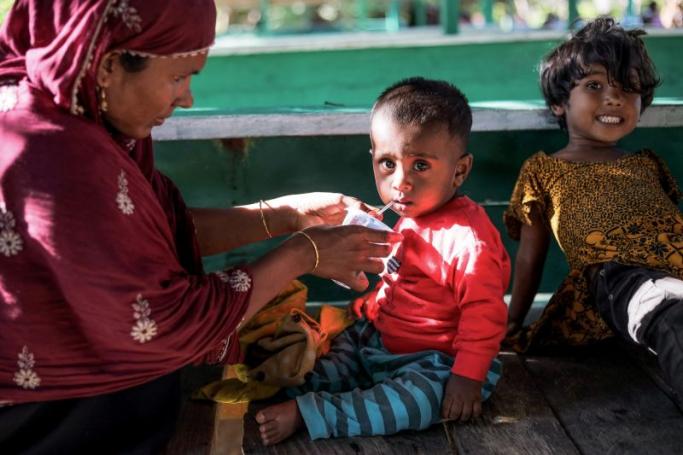Mizzima Editorial
The visit of the UN High Commissioner for Refugees last week to Bangkok was important for a group of refugees who are having a hard time maintaining support.
High Commissioner Filippo Grandi’s message was don’t forget the Rohingya refugees, the majority of whom are living in squalid camps in Bangladesh.
Global politics have seen their cause slip down the list of priorities, particularly given the world media spotlight on the Middle East and the war in Ukraine, conflicts in Africa, and the global migration crisis affecting Western countries.
On the sidelines of a regional meeting on Rohingya refugee assistance in Bangkok on 17 October, visiting High Commissioner Grandi said that more support is needed for ethnic Rohingya refugees who fled from Myanmar to Bangladesh. The high commissioner appears to be seeking to tackle the issue of Rohingya support in the wake of what appears to be “donor fatigue”, with donor funding cutbacks over the last year regarding Myanmar generally, and the Rohingya specifically.
Grandi indicates the focus should be on the “voluntary, dignified return to Myanmar by the Rohingya refugees” being the “most desirable solution” but acknowledging “there are many challenges that need to be overcome”.
“What I have asked the participants in this meeting is to make big pledges in support of the Rohingya refugees: open policies for the host countries, contributions for the donor countries and for everybody else across the world, and attention by the international community,” he told the meeting in Bangkok attended by delegates from Bangladesh, Britain, India, Indonesia, Malaysia, Thailand and the United States, as well as representatives of Rohingya-led organizations.
According to a UNHCR report, there are just over 1 million Rohingya taking refuge Bangladesh, 92,000 in Thailand, 21,000 in India, with smaller numbers settling in Indonesia, Nepal and other countries across the region. The situation for Rohingya people appears to have worsened since the 2021 Myanmar coup, both in terms of security and funding.
In theory, this ought to make the joint plan of Myanmar and Bangladesh to begin resettling the Rohingya refugees in Rakhine State an attractive proposition.
However, the efforts are unlikely to be successful due to ongoing conditions in Rakhine State, such as armed conflicts, including the continued though low-level activity of ARSA, the discriminatory 1982 citizenship law still being in place, and the resulting restricted mobility for Rohingya refugees as a result of their ID status. The Rohingya would not be able to return to their land and their citizenship status would mean they would largely be confined to newly-built settlements.
The Rohingya refugees are caught between a situation of falling funding and far from attractive “captivity” if they do sign up for repatriation. The harsh reality is a return home may be unlikely until the Myanmar junta is removed from power. How long that will take is anyone’s guess.












